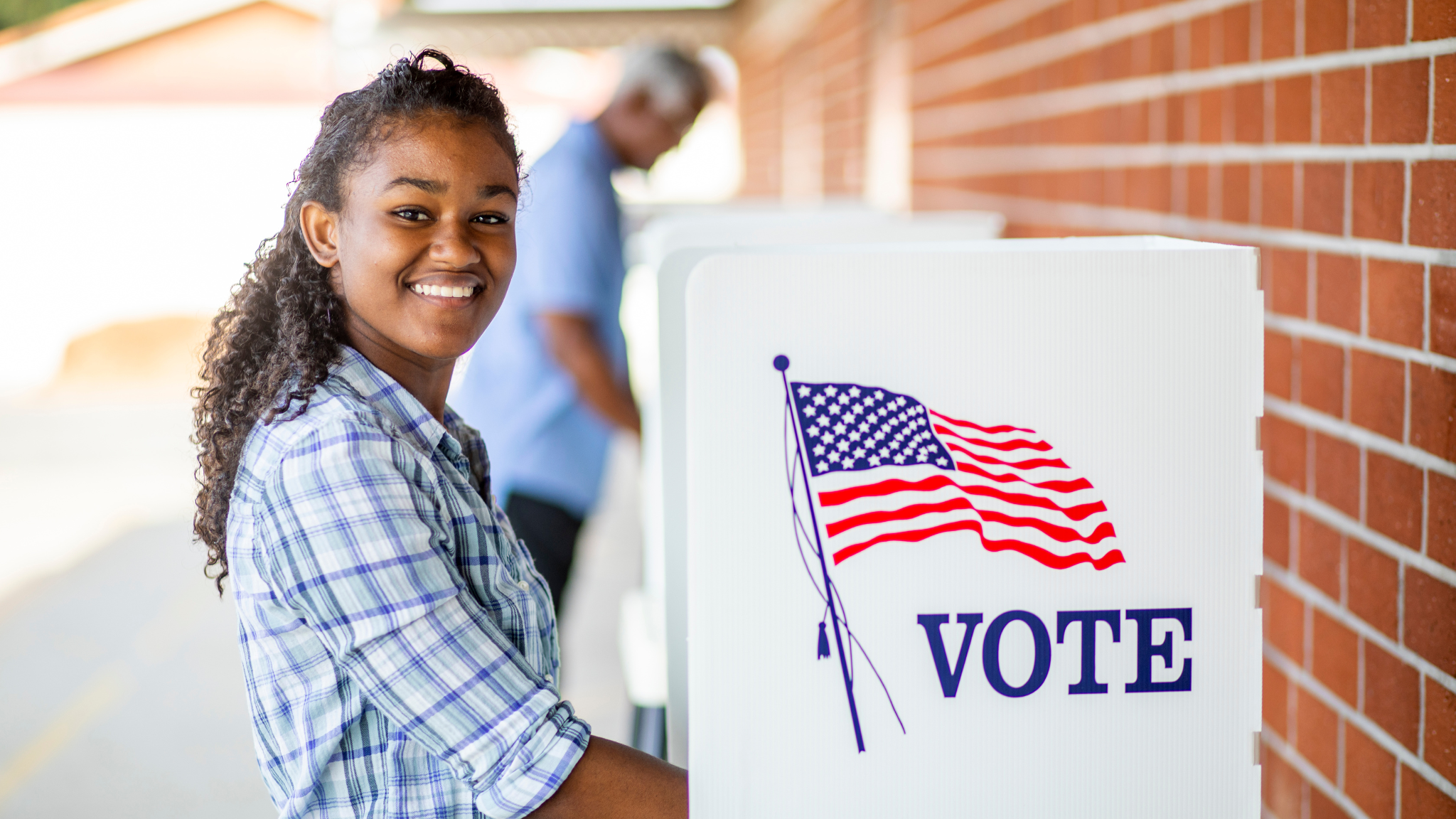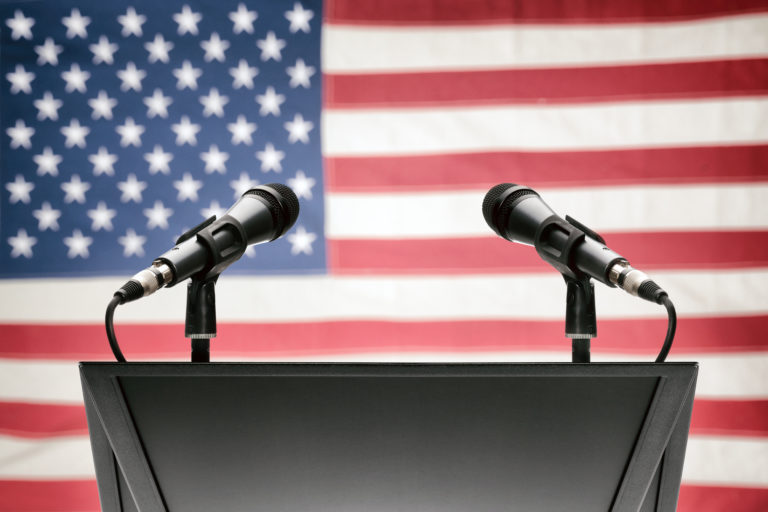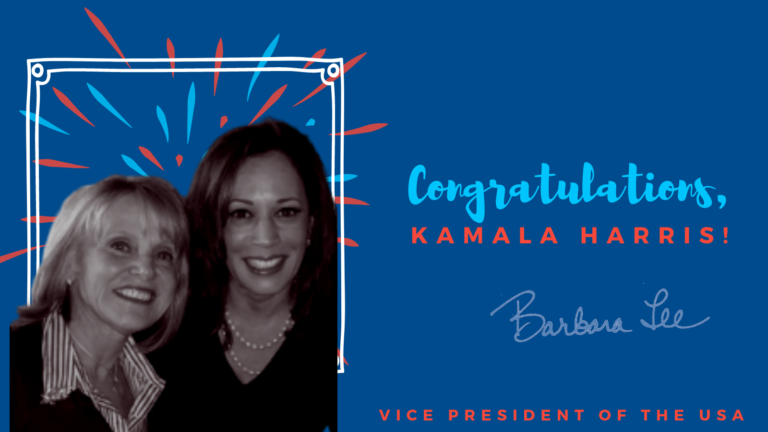Today marks the start of the Democratic National Convention, where later this week the Democratic…
Kamala Harris, Role Model for Democrats and Republicans

Kamala Harris’s ascension to the top of the Democratic ticket last summer generated a lot of excitement. In an instantly iconic photo taken by Todd Heisler of the New York Times during the Democratic National Convention, two young girls in braids—Harris’s great-nieces—look up as Harris accepts the presidential nomination. Harris later shared the photo on Instagram, writing, “I want every little girl across the country to know this: You can do anything—even if it has never been done before.”[1] Both the photo and Harris’s words perfectly represent what we mean by the role model effect, the subject of our new book, See Jane Run: How Women Politicians Matter for Young People (Chicago, 2025).
Our research leads us to expect Harris did in fact inspire girls, and Black girls in particular, to follow in her footsteps. In 2020, we found that even as a vice-presidential candidate, Harris caught the attention and stirred the imagination of Black teenage girls in particular. We also found that Black girls were significantly more likely to say that they plan to get involved in politics—and even run for political office someday!—if they lived in a community where a Black woman ran for US Senate, US House, or governor for the first time. And not just Black girls; white girls also became more interested in pursuing elected office when exposed to Black (but not white) women candidates. We expect a Black woman presidential candidate had an even bigger impact.
What about boys? Given the many sexist attacks on Harris, we might expect that some teenage boys would be hostile to her. In our book, we find that when exposed to women candidates, Republican boys become politically engaged, but because they are threatened, not because they are inspired. As a presidential candidate, Kamala Harris likely had this effect too. Yet while boys demonstrate backlash to women in the short term, we also find that women candidates lead young Republicans’—including Republican boys’—to become less sexist and more likely to believe that women can be effective leaders. One possible consequence of Harris’s 2024 presidential run is that the rising generation of Republicans, girls and boys, may become more receptive to women in positions of leadership—even, perhaps, a woman president.
But Kamala Harris lost. Does that mean that she turned out not to be a role model after all? We suspect not. In twenty years of studying women role models, we have never found any evidence that women candidates have to prevail at the polls to change either the behavior or attitudes of young people. They have to be visible, viable, and in some cases novel—all of which describe Harris—but they do not have to win. As a result, Kamala Harris’ historical candidacy may well result in a highly engaged generation of women—and women of color especially. If so, those women will be Kamala Harris’s legacy.
[1] KamalaHarris, “I want every little girl across the country to know this: You can do anything—even if it has never been done before,” August 26, 2024, https://www.instagram.com/p/C_Ie_ZONL0s/?igsh=ZzgyaHo1NTZpN2pl.
As part of our “Women on Wednesdays” series, please join American University’s Women & Politics Institute for a virtual conversation on Wednesday, April 16th at 6pm ET, with Professors David E. Campbell and Christina Wolbrecht of Notre Dame, co-authors of the forthcoming book, See Jane Run: How Women Politicians Matter for Young People. WPI Executive Director Betsy Fischer Martin will facilitate the discussion. Details and registration here






